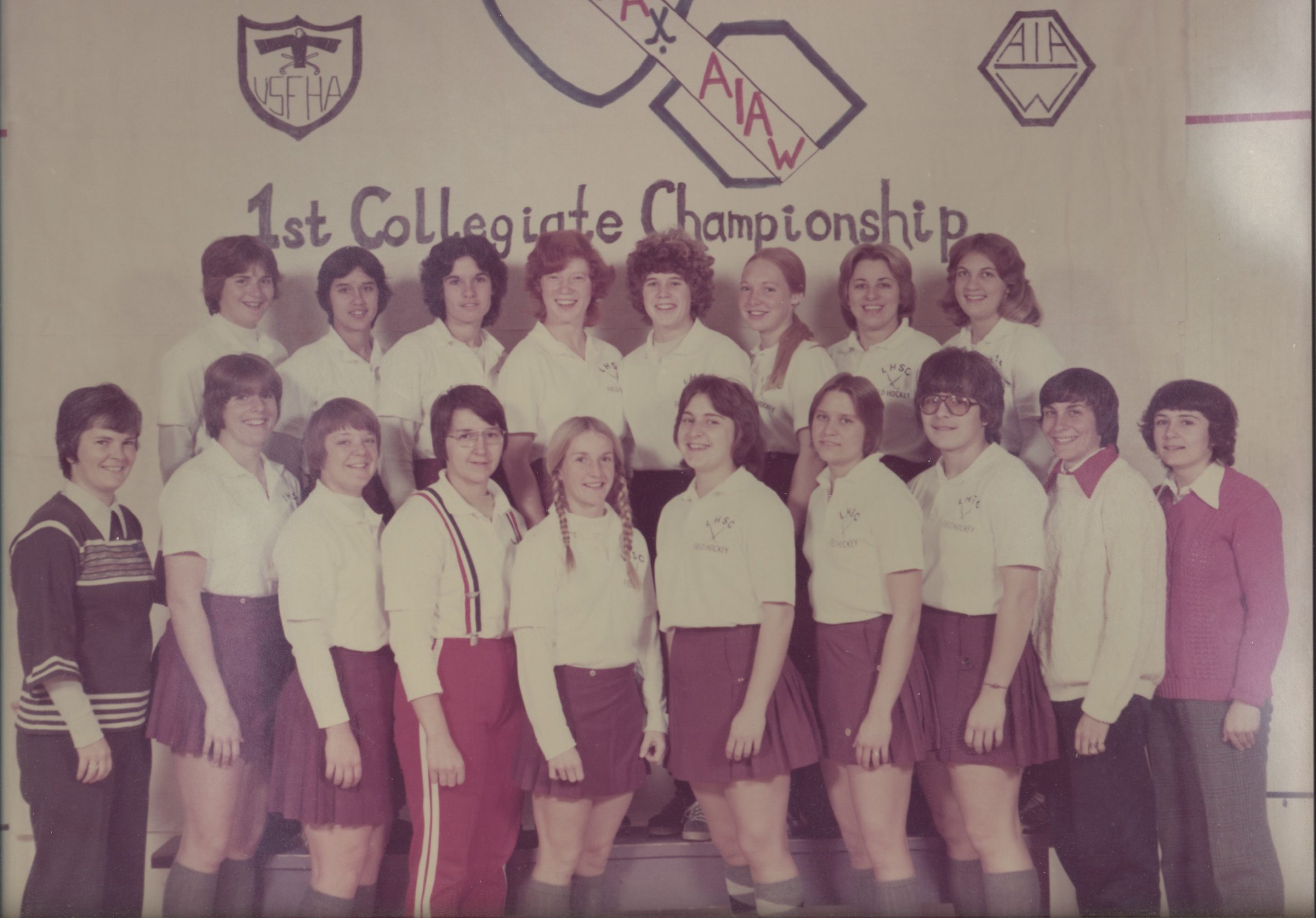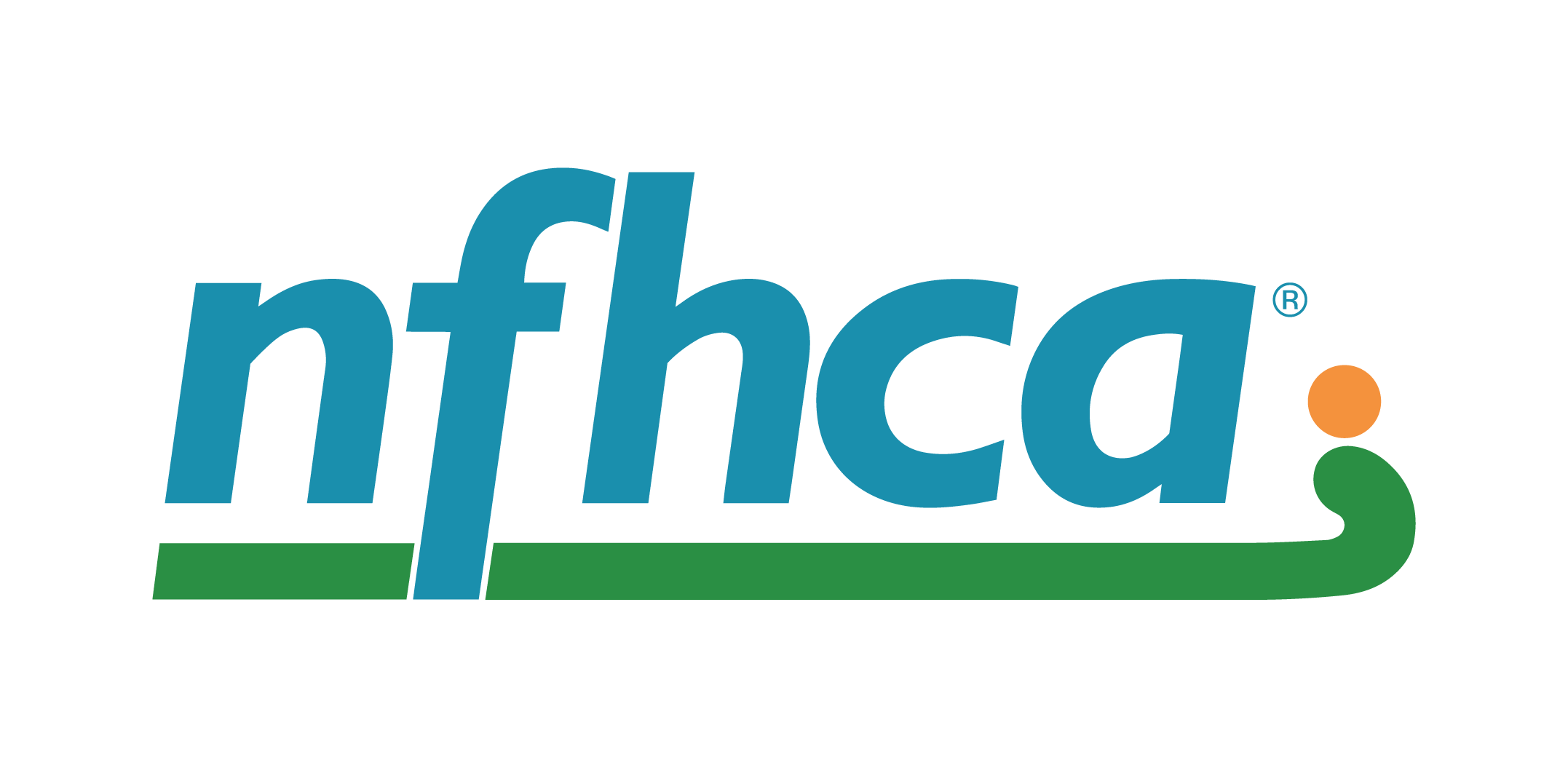A Look at the History of Women’s Field Hockey

The Lock Haven University field hockey team poses before the first AIAW field hockey championship in 1972.
By the NFHCA DEI Committee
As Women’s History Month comes to a close, it is only fitting to take a look back on the history of field hockey in the United States and some highlights abroad.
1901
The sport gains in popularity after Constance Applebee gives a demonstration at Radcliffe College to the women’s physical education professors in the area.
1903
The first recorded instance of intercollegiate field hockey competition for women takes place between Radcliffe College and the Boston Normal School of Gymnastics.
1922
Constance Applebee founds the United States Field Hockey Association (USFHA) in Philadelphia.
1969
Tina Sloan Green becomes the first Black American on the USAFH Women’s National Team.
1971
The Association of Intercollegiate Athletics for Women (AIAW) — the women’s counterpart to the NCAA — is formed, with 280 member schools.
1972
Title IX is enacted, prohibiting sex discrimination in any educational program or activity receiving any type of federal financial aid.
1975
The first AIAW Field Hockey Championship is held at Madison College in Harrisonburg, Virginia. The championship was a result of the devoted efforts by Sharon E. Taylor, who, at the time, was the head coach at Lock Haven University and later became the president of USFHA and athletic director at Lock Haven.
1980
Women’s field hockey first appeared in the Olympics at the in 1980 Moscow Games.
The USFHA Women’s National Team qualified for the 1980 Olympics, but did not participate due to the US-led boycott of the games.
1981
The University of Connecticut, led by head coach Diane Wright, Pfeiffer University, coached by Ellen Briggs, and The College of New Jersey, led by Melissa Magee, win the first NCAA field hockey championship titles in their respective divisions.
1984
The USFHA Women’s National Team earns a bronze medal in the Los Angeles 1984 Olympic Games.
2016
Kate and Helen Richardson-Walsh, of the Great Britain Women’s National Field Hockey team, become the first married same-sex couple to win gold at the Olympic Games.
2017
LGBTQ activist and field hockey player, Rebekah Bruesehoff, speaks for the first time at a rally after legislation to take away protections for transgender students in schools was proposed.
As the years go on, we will see how far the sport of field hockey can reach. We appreciate all the women and coaches who paved the way and continue to inspire the growth of this great game.
(Content credit: USA Field Hockey, the Women’s Sports Foundation, the Olympics, ESPN, and CBS News.)
About the Author
The NFHCA Diversity, Equity, and Inclusion Committee (DEI) was created in August 2020. The mission of the DEI Committee is to connect, educate, support, and guide conversations about diversity, equity, and inclusion.
NFHCA Blog Disclaimer
All content on this blog is for informational purposes only and should not be interpreted as a substitute for NCAA compliance or legal advice. The NFHCA recognizes that the accuracy of the content and opinions in this blog may change over time. The blog site may contain links to other websites or content belonging to or originating from third parties. Such external links are not monitored or endorsed by the NFHCA and the NFHCA does not control such external websites or their content. The NFHCA will not be held responsible for the content of any message from external websites or contributing authors.
The National Field Hockey Coaches Association (NFHCA) is a nonprofit organization serving field hockey coaches and supporters of the game from across the United States. The mission of the organization is to champion, strengthen, and celebrate field hockey coaches and the game. The NFHCA strives to cultivate and recognize the professional contributions of its membership and to foster and promote the growth of the sport. The NFHCA is responsible for providing a recognizable presence and voice in regard to legislation affecting the sport as well as interscholastic and intercollegiate programs.
